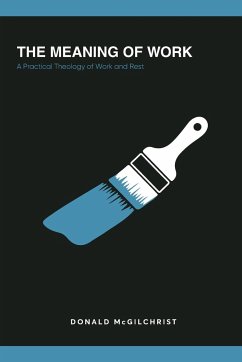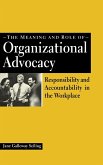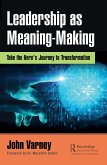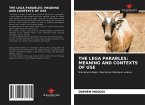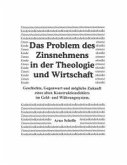Why do we work each day? Is it only to pay the bills? Are we like the miserable mythological Sisyphus, who was forced to endlessly push a massive rock up a hill only to watch it roll back down? Our beliefs about the meaning of work will either fuel or drain our motivation. Our worldview of work will influence our sense of self-worth. Our philosophy of work will shape our career choices and our impact in the world. Throughout history, philosophers and theologians have presented shifting views of what work means. Some, like Plato, elevated the value of intellectual work, such as philosophy and poetry. He also devalued material work, such as manual labor, running a shop, farming, etc. By contrast, Aristotle gave more value to physical forms of work, the work of the here and now. Who was right? As the Roman Empire decayed, the medieval church (generally speaking) followed Plato's views about work. Thus, noble work was related to those who helped mortals stay focused on the "heavenly realms"; that is, the "spiritual" work of priests. But by the early 1500s, prominent theologians like William Tyndale and Martin Luther argued that God valued all work, including the work of common people. Jesus, after all, worked as a carpenter. Today, the question of work's meaning continues to weigh on our hearts and minds. Twentieth century existentialist philosophers claimed that the world has no intrinsic meaning; therefore, we should each fabricate our own meaning through choice and action. As a result, many cultures have adopted a belief about work that says, "You are what you do." This modern perspective leaves us on fragile ground. What happens to human worth and dignity when a person is unemployed? What if we are working in jobs that the culture devalues? In this study, readers will explore what the Scriptures and contemporary thinkers say about the meaning of work in today's competitive, global economy. Integrating conceptual and practical principles, the study presents the following topics: God's original designs for work and relationships The ultimate purpose of work The roots of why work is often so broken and difficult The intrinsic dignity of all workers, regardless of profession The relationship between work and service The nature of true rest Designed to be used individually or in small groups, this book is for anyone who longs to discover a profound meaning of daily life, work, and rest.
Hinweis: Dieser Artikel kann nur an eine deutsche Lieferadresse ausgeliefert werden.
Hinweis: Dieser Artikel kann nur an eine deutsche Lieferadresse ausgeliefert werden.

